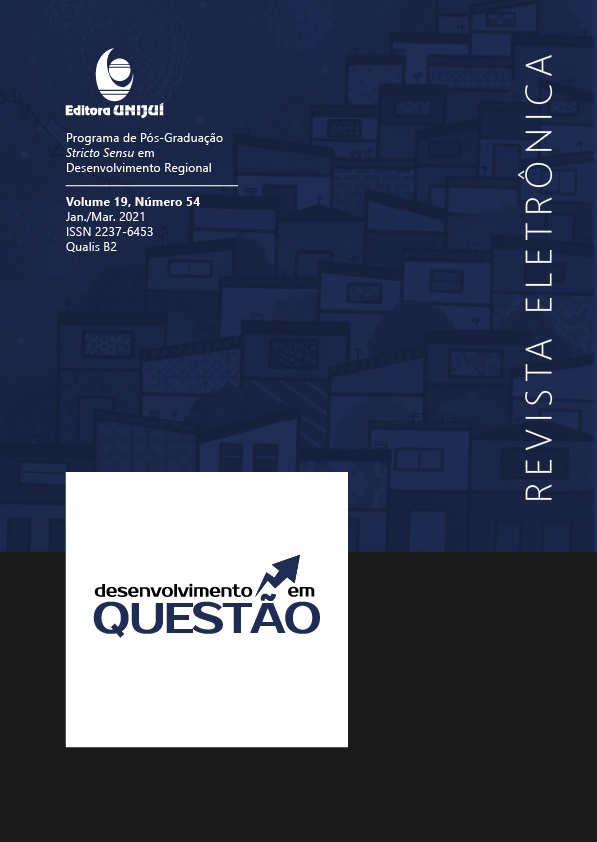Estudo sobre a Hipótese de Fragilidade Financeira de Hyman Minsky Aplicada ao Estado de Minas Gerais no Período 2008-2018
DOI:
https://doi.org/10.21527/2237-6453.2021.54.218-233Palavras-chave:
Fragilidade financeira, Minsky; setor público; Minas Gerais.Resumo
O objetivo desse trabalho foi evidenciar as posições de financiamento do estado de Minas Gerais no período de 2008 a 2018. Conforme a Hipótese de Fragilidade Financeira (HFF) apresentada por Minsky, a forma como são previstos e realizados fluxos futuros de receitas esperadas e em contraponto as despesas, revela como resultado posições financeiras de suficiência, moderada restrição ou completa insuficiência, nomeadas por hedge, especulativa e ponzi, respectivamente. Os estudos sobre a HFF também são adaptáveis para testar a fragilidade das finanças públicas, isto é, a capacidade de um governo de sustentar suas dívidas e demais despesas. A base de dados foi o Balanço Orçamentário. Foi apurada posição de financiamento ponzi para o estado nos anos de 2011 a 2017, especulativa para os anos de 2008 a 2010 e 2018. Considera-se pertinente a utilização dos estudos sobre a Hipótese de Fragilidade Financeira quando aplicados ao setor público, podendo ser instrumento de análises complementares sobre a fragilidade financeira de entes governamentais, reforçando assim seu conteúdo teórico e empírico.
Downloads
Publicado
Como Citar
Edição
Seção
Licença
Ao publicar na Revista Desenvolvimento em Questão, os autores concordam com os seguintes termos:
Os trabalhos seguem a licença Creative Commons Atribuição 4.0 Internacional (CC BY 4.0), que permite:
Compartilhar — copiar e redistribuir o material em qualquer meio ou formato;
Adaptar — remixar, transformar e criar a partir do material para qualquer fim, inclusive comercial.
Essas permissões são irrevogáveis, desde que respeitados os seguintes termos:
Atribuição — Atribuição — os autores devem ser devidamente creditados, com link para a licença e indicação de eventuais alterações realizadas.
Sem restrições adicionais — não podem ser aplicadas condições legais ou tecnológicas que restrinjam o uso permitido pela licença.
Avisos:
A licença não se aplica a elementos em domínio público ou cobertos por exceções legais.
A licença não garante todos os direitos necessários para usos específicos (ex.: direitos de imagem, privacidade ou morais).
A revista não se responsabiliza pelas opiniões expressas nos artigos, que são de exclusiva responsabilidade dos autores. O Editor, com o apoio do Comitê Editorial, reserva-se o direito de sugerir ou solicitar modificações quando necessário.
Somente serão aceitos artigos científicos originais, com resultados de pesquisas de interesse que não tenham sido publicados nem submetidos simultaneamente a outro periódico com o mesmo objetivo.
A menção a marcas comerciais ou produtos específicos destina-se apenas à identificação, sem qualquer vínculo promocional por parte dos autores ou da revista.
Contrato de Licença (para artigos publicados a partir de 2025): Os autores mantêm os direitos autorais sobre seu artigo, e concedem a Revista Desenvolvimento em Questão o direito de primeira publicação.











